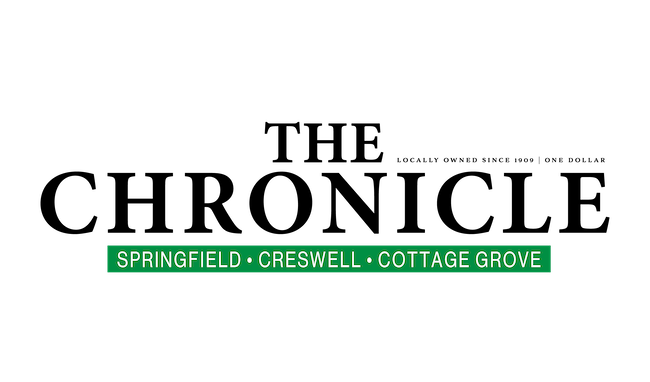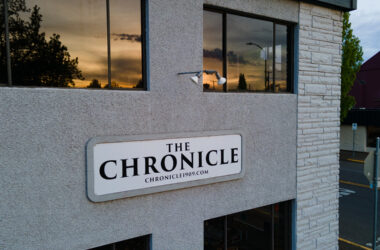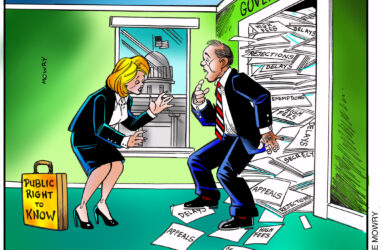
Oregon’s first constitution banned slavery while making it illegal for free African Americans to live in the state. A few years later, in 1872, Mary Beatty, an African American woman living in Oregon, joined three other women — Abigail Scott Duniway, Maria Hendee, and M.A. Lambert — in an attempt to vote. And while it would be 1912 before voting rights expanded in Oregon, these early activists brought attention to the campaign known as “women’s suffrage.”
The League of Women Voters was officially founded in 1920, just months before the 19th amendment to the U.S. Constitution was ratified and women across the country won the vote. But while the right to vote is a common topic when considering women’s history, there are many deeds and perspectives from the shared history we create from the spheres of education, science, religion, family, sports, arts, literature, work, and politics.
 Osborne
Osborne
In recent years, for example, state and local chapters have addressed a broad range of issues through advocacy and education, including:
* Seismic risk & readiness: We believe all levels of government share the responsibility of coordinating, implementing and funding an effective program to mitigate Oregon’s earthquake and tsunami hazards to protect human life and safeguard critical life-support systems. A League team issued a robust report with information on geology and individual preparedness that the public can find on our website.
* Hate crimes: We learned about hate groups, federal laws and statutes, state initiatives, the role of social media, and actions we can take in schools and our communities.
* Child care: League members compiled and shared pandemic-related help, and information on funding, child development needs, and historical trends.
* Climate change: We’ve monitored climate action planning at the city, county and state levels, and are studying the potential impacts of natural gas on our ability to meet climate goals. We’ve also supported climate justice — especially for younger community members who’ll be experiencing impacts for decades.
* Housing & homelessness: We participate in working groups and actively press for increased housing choices and shelter to meet livability, access and affordability needs. Members are joining in such actions as sewing curtains for innovative residences for unhoused people.
* Redistricting: Every decade, states redraw district maps for congressional and state legislative races, while local jurisdictions also adjust boundaries. Our league has championed fair, transparent and independent efforts.
* Education: The League supported the Rural Schools Bill in 1946 to equalize and raise rural school standards. More recently, we’ve supported civics education and local measures that promote safety, equity, and resources meeting today’s educational needs.
Of course, the league continues to work on voter education.
We began offering a speakers’ bureau in 1946 to provide nonpartisan, balanced information on ballot measures. In 1952, we held our first candidates’ fair. Years later, we’re still at it, melding old methods and new technologies. For example, you can find the “They Represent You!” brochure on our website.
The namesake for Creswell was a man from Maryland who never set foot in our state. Appointed Postmaster General by President U.S. Grant, John Andrew Jackson Creswell reformed the postal system – his actions included appointing African-American women postmasters at the community level.
Then and now, our letters and postcards capture history, and these mail carriers made history, too.
History happens even in the seemingly ordinary days. Consider some family members and friends who’ve offered security, support and affection; teachers who’ve encouraged learning; nurses and doctors whose special care helped heal someone we love; writers and artists who have opened our eyes and hearts to ideas; farmers and laborers who’ve helped sustain us; and our immigrant, indigenous and/or enslaved ancestors who brought us here.
These women also have made a kind of history.
Women’s history is … history! This month offers us an opportunity to reflect on and celebrate people, contributions and endurance, and to be good ancestors for the ones to come.
Keli Osborn is a member of the League of Women’s Voters of Lane County.
Citations
1. Original research on the League of Women Voters of Lane County by Kathy Madison, LWVLC; 2. Oregon History Society, Exhibit: Nevertheless, They Persisted: Women’s Voting Rights and the 19th Amendment







